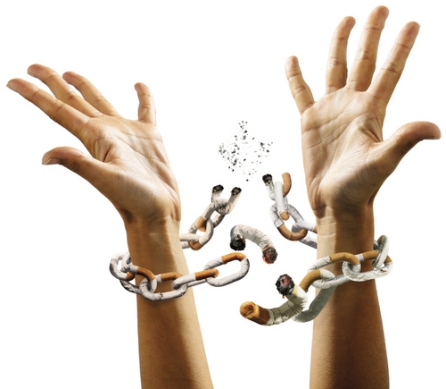A habit is defined as a regular tendency or practice, especially one that is hard to give up. And we all have them, both good and bad. Some we do not even realize are bad, and some more harmful than others.
Most of us find ourselves occasionally slipping into habits we know are bad for us. Unfortunately, once we pick up a bad habit, it can be challenging to switch back to the positive routines that keep us feeling strong and healthy.
Here are some habits that may not seem that harmful but, over time, can negatively affect your health. Fortunately, with the right mindset, you can overcome these patterns of behavior and replace them with healthy, wholesome new habits.
Snacking Between Meals
Snacking between meals is a very common habit, one that many of us indulge in. However, over time, snacking between meals can add extra pounds. Furthermore, choosing snacks containing empty calories can deprive your body of the nutritious foods you need for energy and good health. It’s a good idea to avoid snacking between meals unless you are really hungry. If you do need nutrition between meals, keep healthy choices on hand. Examples are carrots, raw nuts, cucumbers and fresh fruits.
Living a sedentary lifestyle
After a long day or a long week at work, it is understandable if all you want to do is just netflix and chill. Your body requires rest to recover from hard work and stress. However, too much time sitting or lying in one place deprives your body of the exercise and endorphins it needs to keep you fit and happy. If you find you have been lounging on the couch too often, try turning off the television, or maybe do some chores while you have the TV in the background. ANother option is to replace TV time with time spent walking your dog, hiking with friends, or playing a sport you enjoy.

Eating Fast Food
Fast food is tempting, especially because it is so convenient. Not having to spend time preparing your own food is definitely a bonus sometimes. As tasty as fast food can be, it is typically made up of fatty, high-sodium, fried foods. Furthermore, the empty calories can soon leave you feeling hungry again. For food that both fills your tummy and nourishes your body, choose whole grains, lean proteins, and nutrient-packed fruits and vegetables. If time is the issue, look for simple recipes with real ingredients.
Maintaining a Stress-Filled Lifestyle
Working hard to make your way up the ladder at work or to win the favor of those around you can be a healthy pursuit. However, if you are constantly wearing yourself thin trying to accomplish your goals, you may suffer from anxiety, depression, or sheer exhaustion. Make time in your day to engage in activities that revitalize your body and renew your mind. Reading, journaling, spending time with friends, or enjoying nature may help you refresh your mind and keep your perspective clear. Schedule time in your busy schedule to relax and unwind from the stresses of the day.
Not using Sunscreen
Applying sunscreen may seem unnecessary, especially if you have dark skin and don’t have history of getting sunburns, but overexposure to the sun and experiencing frequent sunburns places you at risk for skin cancer. Your skin can suffer damage from the sun even without a sunburn. Therefore, it is critical to get in the habit of applying sunscreen whenever you are going to be out in the sun. Other ways you can protect your skin are by avoiding the sun when it is at its highest, wearing sunglasses and a hat, and wearing sun-protective clothing. Be sure to reapply your sunscreen every two hours.
Excessive alcohol consumption
When socializing or just waiting out traffic, some people make it a habit to stop over at bars to have a few drinks. The excessive consumption of alcohol can contribute to weight gain and also cause damage to your liver. According to the National Institutes of Health, drinking excessively, whether over an extended period of time or on just one occasion, can cause heart problems. Examples of alcohol-induced heart diseases include cardiomyopathy, irregular heart rhythms, stroke, and high blood pressure. Avoid drinking more than two alcoholic drinks per day if you are male. Women should stick to drinking no more than one alcoholic beverage each day. Seek help if your drinking has gotten out of control.

Smoking
According to the American Heart Association, smoking is the most important preventable cause of death in the United States. Smoking is implicated as a risk factor in many diseases including several cancers, heart disease, respiratory problems, peripheral artery disease and many more.
Smoking is highly addictive and quitting can be very difficult but very possible. If you or somebody you know needs help quitting smoking, speak to your doctor or health care practitioner to discuss what options are available in your area or suitable for you.
Misusing Medications
Your doctor may prescribe medications for pain, anxiety, or insomnia. If you find yourself overusing or misusing your medications, you may be doing your body serious harm. Overusing prescription medications can lead to dependence on these drugs. Signs your medications may be harming you include excessive sleepiness, confusion, memory loss, and frequent falls. Your doctor can help you come up with a plan to taper off of these medications. Speak with your physician about switching to other medications or using physical therapy or stress reduction techniques to ease your pain or help with sleep issues.
Not getting enough sleep
You’ve probably heard people say things like “I’ll sleep when i’m dead” or “sleep is for lazy people” but the truth is that your body needs a certain amount of sleep to function normally. During sleep, your body is able to heal, refresh, and re-energize itself. Make getting seven to nine hours of sleep each night a priority. If you have trouble falling asleep, help your body prepare for rest by dimming the lights and engaging in restful activities before bedtime. So instead of watching movies or playing video games late into the night, try turning in early instead.












